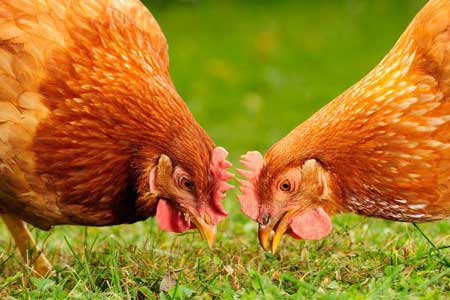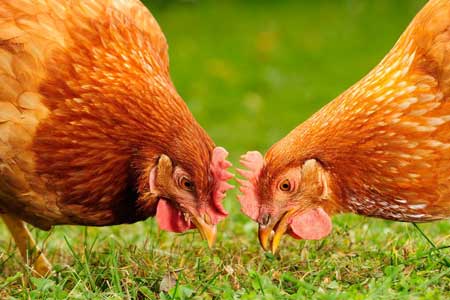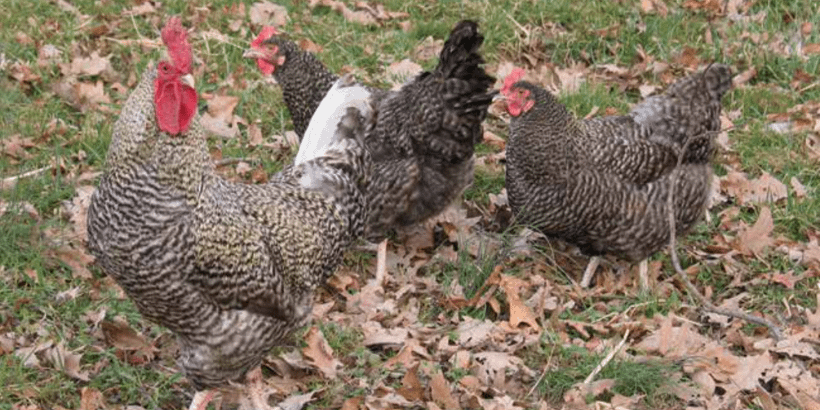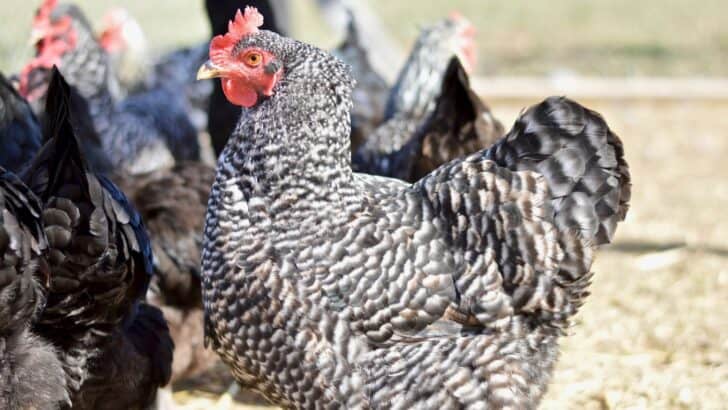
Heritage Chickens: A Colorful Comeback on the Homestead
Are you tired of the same old pale eggs from the grocery store? Do you dream of an egg basket bursting with shades of brown, tan, and maybe even a hint of blue? Then it’s time to discover the wonderful world of heritage chickens! More and more homesteaders are turning to these historic breeds not just for their beautiful eggs, but also for their hardiness and unique personalities. And in light of recent avian flu outbreaks, selecting for resilience has never been more critical. Heritage breeds, with their strong genetic diversity and natural resistance, offer a valuable alternative to commercial hybrids. Let's explore three fantastic breeds – the Dominique, the Buckeye, and the Orpington – and see how they can enrich your homestead.

Spotlight on Dominique Chickens
The Dominique, often called the "America's oldest chicken breed," is a true heritage gem. With their distinctive black and white barred plumage, they are not only beautiful but also incredibly practical. Dominiques are known for their hardiness, particularly in colder climates. They are excellent foragers and can thrive in a free-range environment. Their adaptability makes them a great choice for homesteaders in various regions. You can expect medium-sized brown eggs from your Dominique hens, typically around 4-5 eggs per week. One thing to keep in mind is that Dominiques, while not overly flighty, can be quite docile and therefore more vulnerable to predators. Ensure they have a secure coop and run. Consider using poultry netting to create a safe foraging area. Regularly check for signs of predators, such as digging near the coop or scattered feathers.

Spotlight on Buckeye Chickens
Named for their rich reddish-brown plumage, reminiscent of the Ohio Buckeye nut, Buckeye chickens are a sturdy and self-sufficient breed developed in Ohio in the late 19th century. Similar to Dominiques, they are exceptionally hardy and well-suited to colder climates. What sets Buckeyes apart is their active foraging behavior and impressive winter egg production. They were specifically bred for dual-purpose meat and egg production. These chickens need ample space to roam and express their natural instincts. They are also known for being excellent ratters! Providing them with a large pasture or allowing them to free-range will keep them happy and healthy. While they are relatively docile towards humans, Buckeye roosters can be assertive, so be mindful if you have young children.
Spotlight on Orpington Chickens
If you’re looking for a gentle giant in the chicken world, the Orpington is an excellent choice. These fluffy, docile birds come in a variety of colors, with buff being the most popular. Orpingtons are known for their calm temperament, making them ideal for beginner homesteaders and families with children. They are consistent layers of brown eggs, though they may not lay as many as some hybrid breeds. Their gentle nature means they tolerate confinement well, but they still appreciate access to a run or pasture. It's worth noting that Orpingtons, especially the heavier varieties, can be prone to leg problems if they become overweight or their housing is not properly maintained. Ensure they have adequate roosting space and a clean, dry coop. Consider using ramps to help them access higher areas without straining their legs.

Practical Care Tips for Heritage Chickens
No matter which heritage breed you choose, providing proper care is essential for their health and productivity.
Coop Design: Aim for a minimum of 4 square feet per chicken inside the coop and 8-10 square feet in the run. Good ventilation is crucial to combat humidity and reduce the risk of respiratory diseases. Ensure the coop is securely fenced to protect against predators like foxes, coyotes, and raccoons.
Diet: A balanced diet is key. Allow your chickens to forage naturally, supplementing with a high-quality layer feed. Offer treats like mealworms and vegetable scraps in moderation.
Biosecurity: Protect your flock from avian flu by limiting contact with wild birds. Practice strict hygiene by regularly cleaning the coop and disinfecting equipment. Monitor your chickens for any signs of illness and consult with a veterinarian if needed.
Conservation and Community
Raising heritage chickens is more than just a hobby; it's a way to contribute to the preservation of these unique breeds. Many heritage breeds are at risk of extinction due to the popularity of commercial hybrids. By choosing to raise them, you are helping to maintain their genetic diversity and ensure their survival for future generations. Consider participating in responsible breeding programs or selling your eggs at local farmers' markets to raise awareness and support for heritage breeds. You can learn more about heritage breed conservation at The Livestock Conservancy.